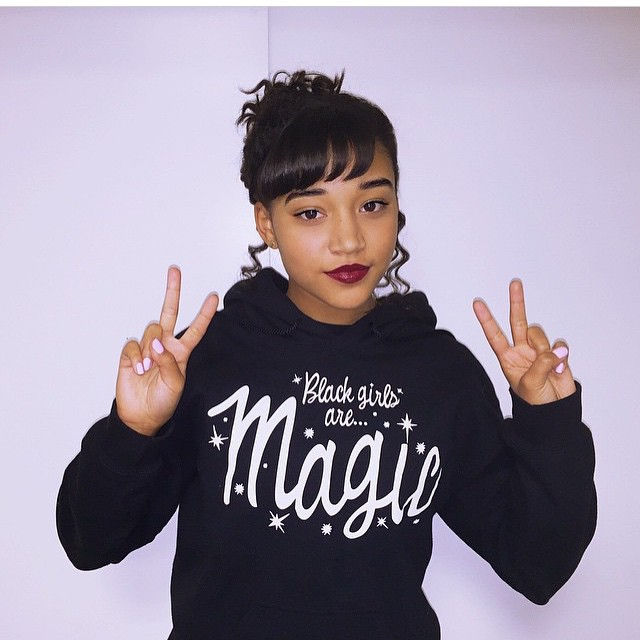Trademarks and Social Media Movements: #BlackGirlMagic
- Corinne Coleman
- Oct 16, 2019
- 3 min read
In April, I scrolled through my Instagram timeline and noticed a follower I had never seen before. When I clicked on the unfamiliar name, @sellflove_, the page had one photo which made me a little suspicious. But I looked a bit closer, and I quickly realized that it was my cousin Nadia. She started posting pictures amid my discovery, and I started seeing all these cute sunglasses, earring, and t-shirts with the distinct logo of “SellfLove.”
My immediate thought was, I need those glasses! (I bought them asap!) But then it hit me, my cousin started her own business and used the community she had already built on her social media to establish and promote it. We eventually had a phone conversation, and she told me something I never would’ve thought to do. Before she ever went live with her SellfLove™ website, she filed an application to register for a federal trademark. Nadia was savvy enough to know and understand the importance of protecting her business and her brand before she ever even made a dime from #sellflove.

To give you an idea of the importance of federal trademark protection, let’s explore the controversy behind #BlackGirlMagic. In 2013, via Twitter, CaShawn Thompson coined the term initially as #BlackGirlsAreMagic and used it as a social movement to spark a discussion around black women and girls. At the time, Thompson had no idea how far and fast the phrase would catch on.
International Women’s Day 2019 Promo created by Google
Eventually, Thompson realized its potential and started to sell t-shirts with the words “Black Girls are Magic” and had notable celebrities wearing them. This is a perfect example of learning how to monetize from your own ideas or concepts. But what Thompson failed to do was register “Black Girl Magic” as a trademark. Doing so would’ve allowed her to legally own what she had created; instead, she lost that right and her brand along with it.
In August 2014, Beverly A. Bond, the founder of Black Girls Rock!, registered her application for a trademark of “Black Girl Magic” as the first use in commerce claim, but later abandoned her application in October 2016. Before that, in February 2016, she filed her application to trademark “Black Girl Magic” with the intent to use the term as a service mark for creating and developing concepts for television.
The following month, Essence Magazine applied for the use of “Essence Black Girl Magic” with the intent to use the term as a service mark for educational and entertainment purposes. Essence challenged Bond’s claim to “Black Girl Magic” citing that she was not the originator, nor should she be able to trademark the catchphrase of a social movement.
What made this Essence vs. Bond dispute unfortunate is that the originator of “Black Girl Magic, Thompson, held no claim to what she created, something that she gave life to and watch grow was, legally, not hers. There was no mention of her being credited from either side
of the legal battle, and she was never even made aware of the controversy during its proceedings.

In the end, Bond ended up with the service mark rights to Black Girl Magic, Essence’s application is dead in the system, and Thompson, who has since trademarked “Black Girls Are… Magic”, has learned a valuable lesson about brand protection.
To register for a federal trademark application visit www.uspto.gov and be sure to carefully read through the instructions of the application process and contact a trademark attorney for further questions. The cost to file is between $275-$375 for each class of goods or services you wish to provide. That cost may be a bit steep, but the cost of losing your business or brand can be even steeper. CaShawn Thompson learned this lesson the hard way, my cousin Nadia, thankfully doesn't have to, and neither should you.
DISCLAIMER: This is NOT legal advice and your reading or engaging with this blog does NOT create an attorney-client relationship. Please consult our office if you require an attorney or need further legal assistance. Enjoy reading!





Comments